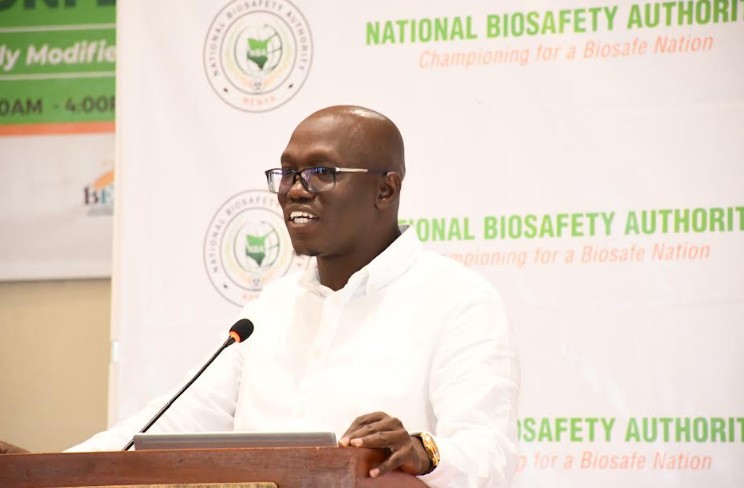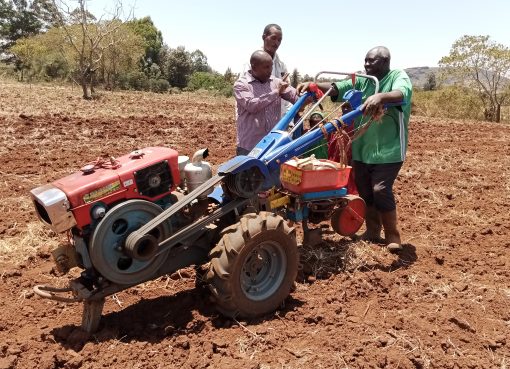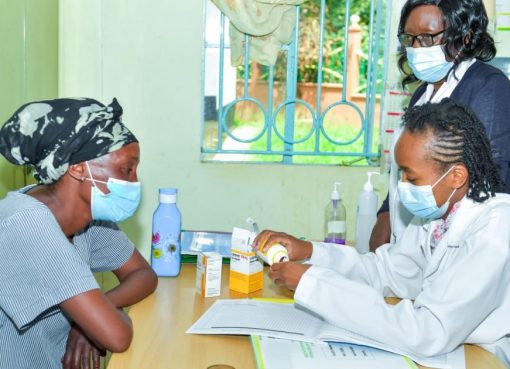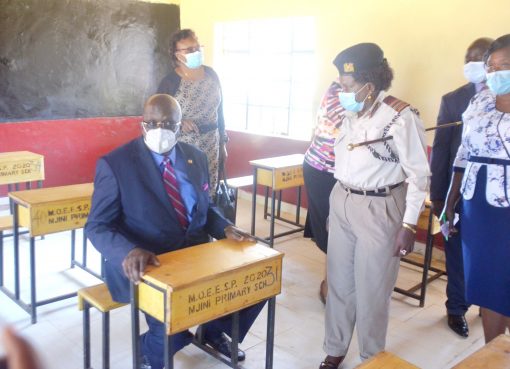Nandi County government will partner with the National Biosafety Authority in sensitising Kenyans to embrace genetically modified organisms (GMOs) in the Country.
Dr Kiplimo Lagat, the Secretary, CECMs Agriculture Caucus at the Council of Governors, emphasised that the Constitution mandates Counties to manage agriculture, health, and environment, and therefore working with the Authority will go a long way to promoting modern biotechnology.
Dr Lagat, who is also Nandi County Executive Committee Member CECM for Agriculture and Cooperative Development, noted that counties desire involvement but lack formal mandates, resources, or frameworks.
In his presentation dubbed ‘advancing Devolved Biosafety Governance in Kenya’, he observed that there is a big disconnect between the National policy and the realities in the counties and this can be amended through formally involving the County Governments in risk surveillance and public education. Biosafety is not just a national government role but a local action.
“As the country looks ahead in biotechnology and the possible areas of improvement, this conference has made it clear that the collaboration of all stakeholders plays a great role and the National Biosafety Authority will not limit innovation but oversee it as its mandate dictates, ensuring safety for humans, animal health and the environment,” added Dr Lagat.
The 13th Annual National Biosafety conference brought together brilliant minds with diverse experience, insights and expertise and a great passion towards modern biotechnologies. With the theme :13 Years later, building trust and ensuring the safety of Genetically Modified Organisms, the conference offered wide-ranging conversations, from Artificial Intelligence to genome editing and food security to the roles of County Governments in Biosafety advocacy.
The biotech landscape continues to evolve rapidly and there is a need for biosafety measures more urgent than ever.
Speakers included Scientists, youth, and farmers, even farmers, each offering a unique perspective that made a holistic approach to the conversation.
A presentation from Dr. Justin Overcash explored the potential use of Artificial intelligence in the risk assessment of Biotechnology. Risk assessment in Biotech involves; understanding the product, problem formulation, risk characterisation, risk analysis, mitigation measures and monitoring, which all contribute to decision-making.
Dr. Overcash emphasised that there is tremendous potential for AI to aid in future risk assessments and even in current risk assessments to increase efficiency and competence.
He underscored the critical human component in the risk assessment of Biotechnology.
The conference emphasised the importance of basing GMO food and feed assessments on internationally recognised standards.
The determination of food safety is guided by CODEX (FAO/WHO) guidelines which stipulate that GMO food should be as safe as the conventional counterpart, though absolute safety is scientifically unattainable.
Labelling of GMOs is therefore important in not only safeguarding consumer rights but also giving the consumers the right to make informed choices.
Socio-economic assessments were also highlighted as playing a significant role in supporting regulation and there is therefore a need for public-private partnerships in the areas of research and development to facilitate access to advanced technologies, equipment and finances and also timely production and distribution of improved seeds.
Dr. Gilbert Muthee from the State Department of Agriculture spoke on the significant contribution of GMOs to agricultural productivity and industrialisation. Increased yields, improved resistance to pests and diseases, adaptation of crops to climate change and resource efficiency have enhanced food security.
GMO crops have also contributed to industrial growth in agro-industrial sectors like biofuel production, food and feed processing and biotechnology applications. This has led to economic growth and job creation in farming, processing, logistics and retail, leading to a significant increase in tax revenues and export earnings.
He noted that Science and society at large have to work together to ensure inclusivity, transparency and trust are built.
The youth were not left behind in this significant conversation. Their engagement in Biosafety for a sustainable future cannot be undermined, as they are key in driving innovation, combating misinformation and promoting inclusivity.
Their participation showed the efforts of building trust through transparent communication, community engagement and media relations in strengthening public acceptance of biotechnology.
Rapid technological advancements and evolution have seen processes that would take decades and millions of dollars done in under a day for just a few dollars.
The UNESCO Declaration also provides a universal framework to use in formulating bioethical legislation and policies and encourages cultural diversity, solidarity, social responsibility and benefit sharing.
Kenya has aligned itself with this by the regulations enforced by the National Biosafety Authority.
By Linet Wafula





